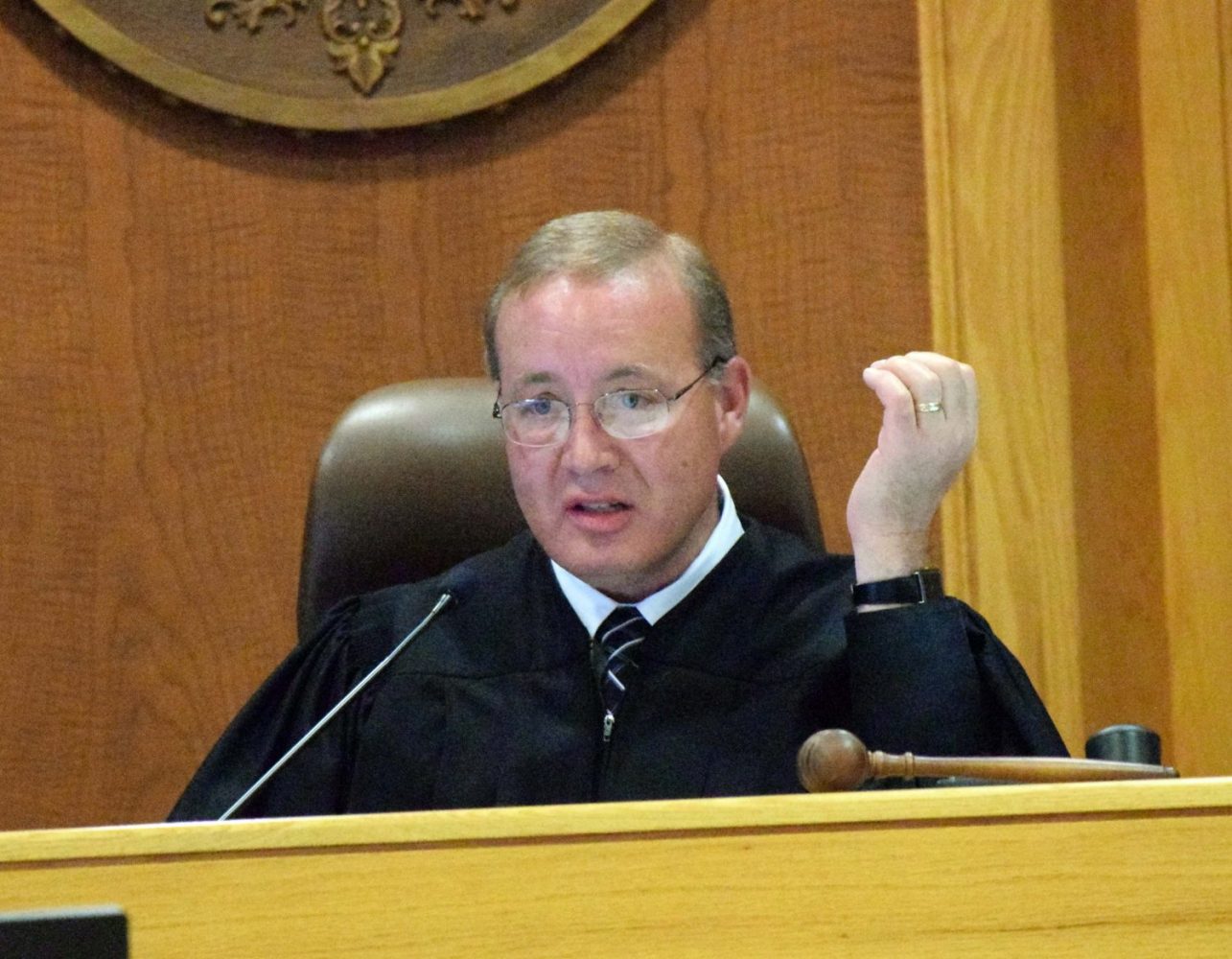Motion to reduce sentence for Ashlee Martinson denied

Judge Bloom rules he didn’t abuse his discretion; attorney to appeal
BY KEVIN BONESKE
REPORTER/PHOTOGRAPHER
Oneida County Judge Michael H. Bloom has denied a motion brought by an attorney representing Ashlee Martinson seeking to have her sentence reduced on two counts of second-degree intentional homicide, for which she pleaded guilty.
Martinson, 19, is now serving a 23-year prison sentence in the Taycheedah Correctional Institution that was imposed June 10, 2016, for the March 7, 2015, deaths of her 37-year-old step-father, Thomas Ayers, who was shot twice with a 12-gauge shotgun, and her 40-year-old mother, Jennifer Ayers, who was stabbed more than 30 times, in their town of Piehl home.

Mark A. Schoenfeldt
At Wednesday’s motion hearing, for which Martinson appeared by phone, her attorney, Mark A. Schoenfeldt, argued that Bloom “erroneous exercised his discretion” when he sentenced Martinson, taking issue with a statement Bloom made that she “had a choice” not to kill Thomas and Jennifer Ayers.
“When this case was reduced from a first-degree intentional homicide to second-degree intentional homicide, that takes into consideration the affirmative defense of adequate provocation,” Schoenfeldt said. “The adequate provocation definition is that person lacks, completely lacks, self-control in an ordinarily constituted person.”
Schoenfeldt further argued that because Martinson, who was 17 when the homicides occurred, had a history of abuse, “her life was basically a horror story.”
“This was not a normal 17-year-old that came before the court,” Schoenfeldt said. “But the court, in its reasoning, had found ultimately that Ms. Martinson did have a choice – found that this person should be considered in the same category as a normal 17-year-old.”
Schoenfeldt concluded his arguments by stating “the court was in error in making the decision in sentencing Ms. Martinson to 23 years in prison.”
In response, district attorney Michael W. Schiek said he disagreed Bloom abused his discretion in sentencing Martinson.
“In my opinion, the court looked at the law for sentencing, the factors it was to consider, and applied those factors to the sentence the court gave,” Schiek said.
In issuing the ruling to deny the motion, Bloom said it had been a “difficult, unpleasant task” for him to sentence Martinson.
“The sentencing in this case required the court to balance what had been clearly established by the defense that Ms. Martinson (experienced) – at the hands of her mother and step-father, the victims in this case – a horrific pattern of abuse over a period of years,” Bloom said. “And what that had to be balanced with was two very brutal, horrific killings.”
As to whether determining Martinson “had a choice” not to kill Thomas and Jennifer Ayers amounted to abusing his discretion in sentencing her, Bloom said that requires him to interpret the applicable statutes, which he cited in court and also referenced law review article passages related to state law on intentional homicide.
“The statutory legality of adequate provocation, i.e. no intent to kill, does not foreclose a court from considering the factual reality that a defendant found guilty of second-degree intentional homicide, on the basis of adequate provocation, consciously and purposely took the life of another,” Bloom said. “And I say this based on language in a concurring opinion by a justice of the Wisconsin Supreme Court that was cited with approval in a scholarly article written by members of the committee that drafted the statutory language that I am interpreting today.”
As a result, Bloom said “the applicable statutes do not foreclose, as a matter of law, a court from considering at sentencing that a person found guilty of second-degree intentional homicide, on the basis of adequate provocation, had a choice, and as such I conclude that the court did not abuse its discretion in doing so.”
Following Bloom’s ruling to deny the motion, Schoenfeldt said the decision, which he plans to appeal to the Court of Appeals, was “very well-reasoned.”

Michael W. Schiek
“I have to commend the judge for amount of time he put into this,” Schoenfeldt said. “It looks like he put a lot of research into it.”
Schoenfeldt said he is confident going forward with the case to the Court of Appeals to make the “ultimate decision” and, if necessary, the Wisconsin Supreme Court.
When asked about what would be an appropriate sentence for Martinson, Schoenfeldt said he agrees the prison sentence should have been in the neighborhood of eight years as sought by the legal counsel who represented her at sentencing.
“Given all the facts and circumstances, that’s the range that I thought it should have been in,” he said.
Schiek said he would not be personally involved with an appeal to the Court of Appeals being handled by the Criminal Appeals Unit of the Wisconsin Department of Justice.
“Somebody from the appeals division will become responsible for the file,” he said. “I assume that they’ll start over and take a look at everything fresh.”
Leave a reply
You must be logged in to post a comment.





